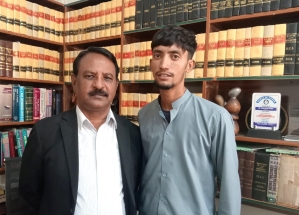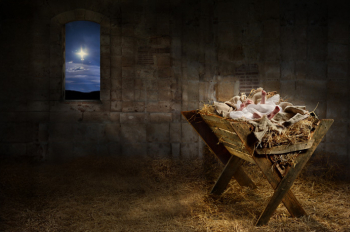
A 22-year-old Christian man in Pakistan has won a seven-month legal battle to have his religious designation corrected on his national identity card.
In a systemic issue that has deep legal and social consequences for Pakistan’s vulnerable minority communities, Bahawalpur Civil Judge Anam Younis on Oct. 17 directed the National Database and Registration Authority (NADRA) to issue Rahul Masih a new identity card with his name and Christian faith, Masih’ attorney said.
Attorney Lazar Allah Rakha said that Masih’s original identity card, issued in June 2022, carried his correct name and faith, but that when he applied for a duplicate card after losing the original, NADRA issued him one stating his name as Sufyan Ali and his religion as Islam.
“Masih made repeated visits to the NADRA office, but his pleas to rectify the mistake were not entertained,” Rakha told Christian Daily International-Morning Star News.
A Catholic working in an office of a private housing society, Masih had no option but to seek the court’s intervention in the issue with the support of legal advocacy organization ADF International, Rakha said.
During the court proceedings, NADRA representatives claimed that Masih had willfully converted to Islam and registered himself as a Muslim, though they failed to substantiate their claim with documentary evidence, Rakha said.
“Noting that the defendants had failed to discredit Masih’s stance, the judge ordered NADRA to issue him his national identity card as per his correct name and religion,” he said.
During the proceedings, Masih presented his baptism and school certificates and also brought his Christian parents to testify about his faith, he said.
“I’ve never been a Muslim and always practiced Christianity,” Masih told Christian Daily International-Morning Star News. “I was surprised when NADRA officials told me that I had myself gotten my name and religion changed on my identity card, and that it could not be rectified now because I was registered as a Muslim. Despite my pleas that this was not true, they remained adamant and refused to correct their mistake.”
Pakistani authorities generally refuse to allow people registered as Muslims to change their religious identity. Courts and officials have consistently denied such requests, except in cases where an error in records can be proven or when someone converts to Islam.
Rakha said that incorrect registration leads to serious legal, social and economic disadvantages, and in some cases discrimination and security risks.
“According to NADRA’s CNIC [Computerized National Identity Card] registration policy, any mistake by applicants to state their religion correctly due to illiteracy may be handled in the office fault category,” he said. “NADRA permits conversion to Islam with ease, but conversion from Islam to another religion is treated with suspicion and often rejected. Applicants are generally told to obtain a court order directing NADRA to make the correction, resulting in lengthy and expensive litigation.”
He noted that any minority wrongly identified as Muslim in NADRA records could not be considered eligible under minority employment and education quotas at the federal and provincial levels.
Religious minorities have been allocated an approximately 5 percent quota in federal and provincial public sector jobs. As recruitment databases and Human Resources systems rely on CNIC information, “even genuine minority candidates are automatically filtered out if they are incorrectly registered as Muslim,” he said.
“Similarly, provincial governments, notably Punjab, have reserved a 2 percent quota in public sector universities for minority students,” Rakha said. “Eligibility for these seats requires verification through NADRA records. When a student’s religious identity is incorrectly registered, they cannot be considered for minority seats or related scholarships.”
Furthermore, incorrect registration contributes to underutilization of reserved seats, as institutions report them vacant when eligible candidates are excluded on technical grounds, he added.
Incorrect religious entry on the national identity card also affects civil documentation such as passports, Family Registration Certificates (FRCs), school records and marriage registration systems, he said.
“Personal law is also linked to religious identity, and any incorrect listing will complicate legal recognition of marriage,” Rakha said. “It also affects inheritance rights as succession laws differ by religion.”
Incorrect registration can also create security and social risks.
“If a minority person is listed as Muslim, they lose access to minority entitlements and may face suspicion or backlash if the truth about their religious identity emerges,” he said. “For those who have converted from Islam, changing the religion in NADRA’s record is particularly dangerous, exposing individuals to charges of apostasy or coercion.”
Apostasy is considered a sin punishable by death under most schools of Islamic jurisprudence. Although there is no specific law in Pakistan to deny Muslims their right to change religion, apostasy may be punished under Section 295-A of the country’s blasphemy statutes, which imposes up to two years of prison for “outraging the religious feelings of any class of citizens.”
Addressing this issue is integral to ensuring equal citizenship, faith freedom and inclusive governance in Pakistan, the lawyer said.
“The government should streamline NADRA’s correction procedures with transparent, safe and affordable mechanisms for amending religious identity entries,” he said. “It should also introduce legal safeguards to protect individuals who seek to correct their religion without fear of persecution.”
Pakistan ranked eighth on Open Doors’ 2025 World Watch List of the most difficult countries to be a Christian.





